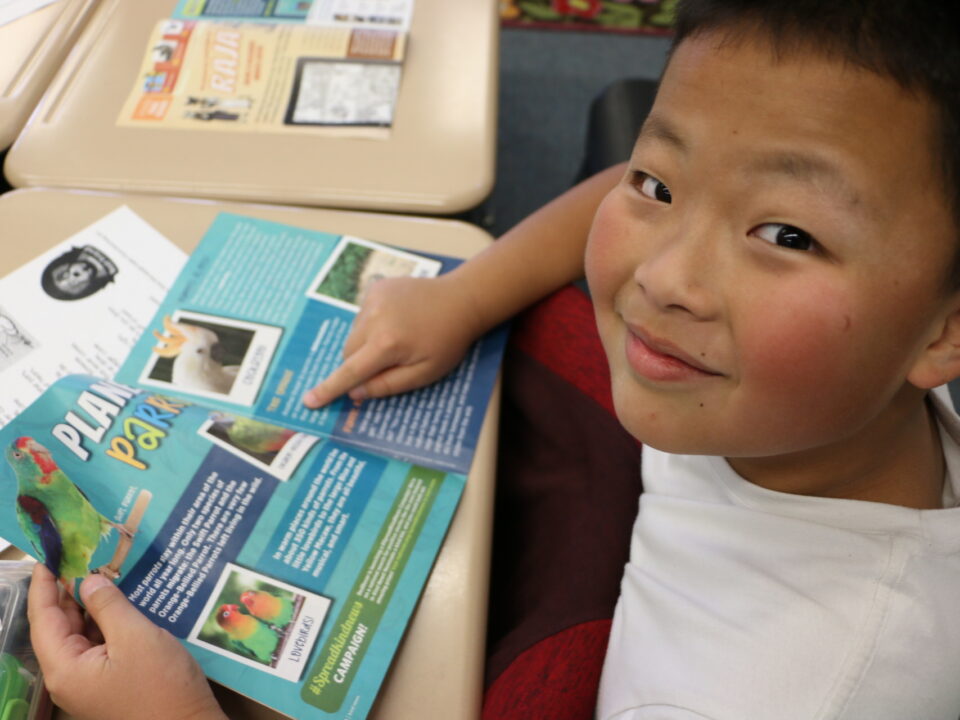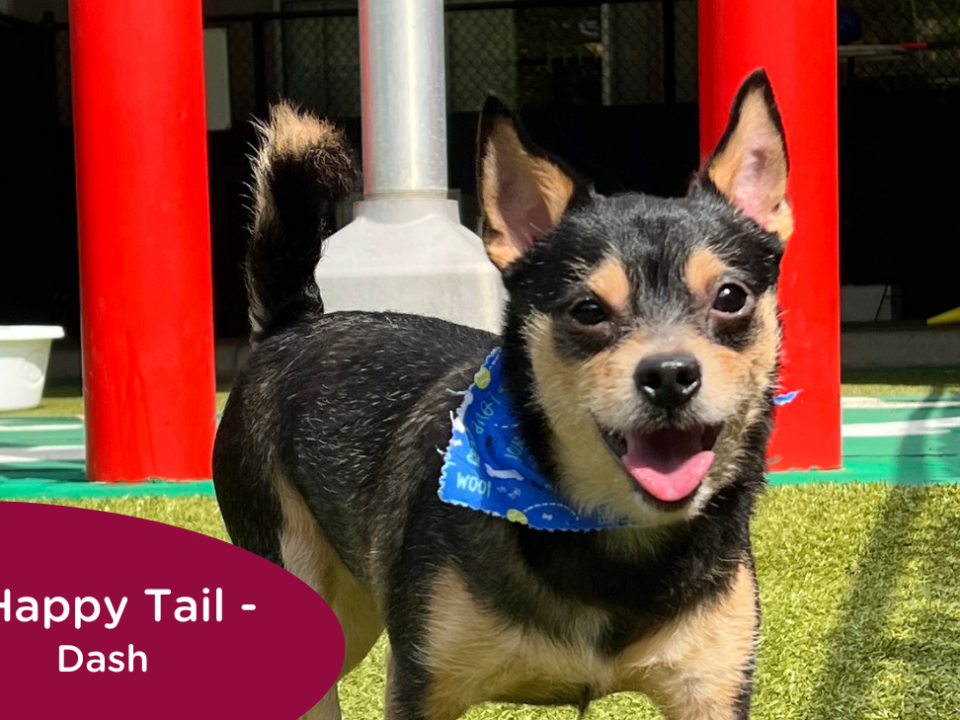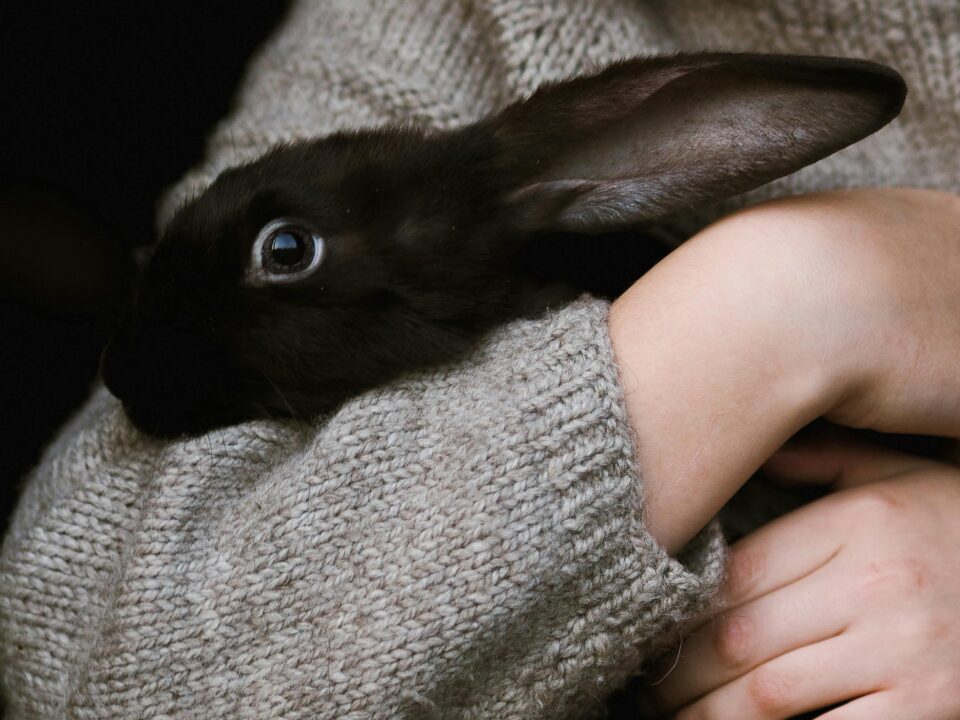Honoring Immigrant Heritage Month: Home is Where Our Pets Are
June 17th, 2021
By Olivia Carpenter, RedRover Membership and Administrative Assistant

Olivia with her brother Johnny
My mom and dad both grew up with pets, but when we immigrated from Mexico to the United States in the late 80s, my parents had their hands full with two kids under the age of five. Creating a new life in a foreign land was unimaginably difficult. While we never went without food, clothes, or a roof over our head, for years my dad worked two to three jobs at a time to make ends meet, and my brother and I got used to hardly seeing him. Like a lot of kids, we craved a furry companion, especially when we felt lonely in our new home.
Initially, we were too financially unstable to have a pet, but after about two years of living in a rundown apartment complex in a high-crime area, we finally moved to a one-bedroom apartment in the suburbs where we felt safe – and the possibility of a pet became a little more attainable.
Mom and Dad had no idea how hard it would be to adopt a kitty in the U.S., plus the challenges of caring for one. Back then, it was pretty easy for a family living in Mexico to get a pet, especially compared to the adoption process in the United States. In Mexico, it was common to acquire a pet through a friend or relative whose dog or cat had had babies, or a stray would follow someone home and join the family.
For a low-income family in Mexico, providing for a dog or cat looked very different from the way “proper” pet care was presented in the U.S. In Mexico, not everybody could afford branded dog or cat food, and my mom remembers that it was common for people to go to the butcher to ask for scraps of meat, or they’d simply share their human dinner with the furry members of the family. When my mom was young and still living at home, she’d go to the local lumber mill and ask for fresh sawdust for the family cat’s litter box. The employees never minded her taking some, and it served the kitty’s needs well.
Having seen and experienced such varied ways of providing for a pet on very little income, my mom and dad were shocked to discover how expensive it was to care for a companion animal in the United States. They’d been looking for a kitten to add to our family for some time, but were stopped short by the restrictive adoption process that required a home visit prior to approval. My parents knew we would never be approved because our one-bedroom would seem too small and crowded for any pet other than a small one, like a fish or a hamster. Also, the condition that the kitty be spayed or neutered within two months of adoption meant that my parents would have to save a lot more money before they’d even be able to apply.
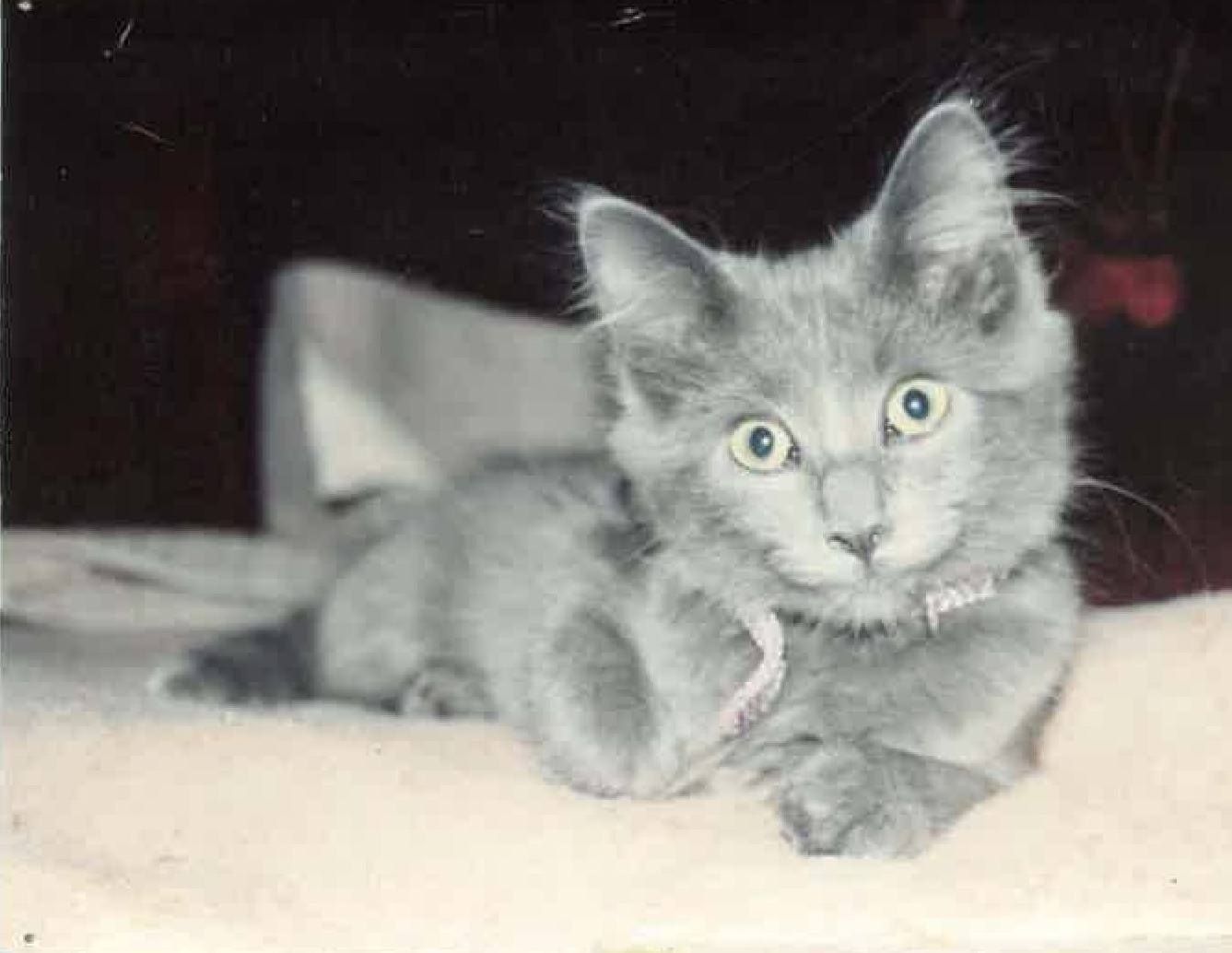
Olivia’s childhood cat, Miss Kitty
My parents didn’t want to raise our hopes, so they never told us they’d been looking for a cat until after we adopted our first kitty. “Miss Kitty” was an unexpected gift from the universe.
My family would often stop at pet stores on the weekends just to fawn over the animals. My brother and I couldn’t hold back our delight as Mom or Dad pointed out little details like the tiny feet of a sleeping hamster or the adorable noise guinea pigs make when they’re happy. Then one day we noticed a tiny, private pet store in a small shopping center and decided to have a peek. I only vaguely remember the dark store, cramped with products and animal cages and potential pets. The owner watched us “ooh-ing” and “ah-ing” for some time, and when my dad asked about the kittens he had for sale, the owner offered us the long-haired, older kitten sitting in her own food bowl – practically for free!
He explained that she had been at the pet store for some months, and he didn’t think she’d ever find a home, especially because a new litter of younger kittens had just arrived. Apparently, customers went straight for the babies and ignored the older gray kitten in the back.
“Your kids can have her for free if you buy a box of cat food and some litter,” the owner told us. Buying these products was an unexpected expense in a household where every penny counted, but my mom and dad knew the value of raising kids with pets. They decided it was time.
If I had to describe my early childhood in a few words, I’d say I was often scared and/or worried. I wasn’t capable of understanding why we had moved to a new country where we had almost no family and no friends. We were quite isolated, our little apartment set apart from any neighbors, and our family was the only one with kids in our area. Every day at school I’d wait for the dismissal bell to ring so I could run home to be with Miss Kitty. My brother and I would play with her, carry her around, watch her watching birds outside, and generally pester our very patient, fluffy friend. Miss Kitty and I were especially close. I can’t say how many times I cried into the soft fur of her belly, or fell asleep with her at my side.
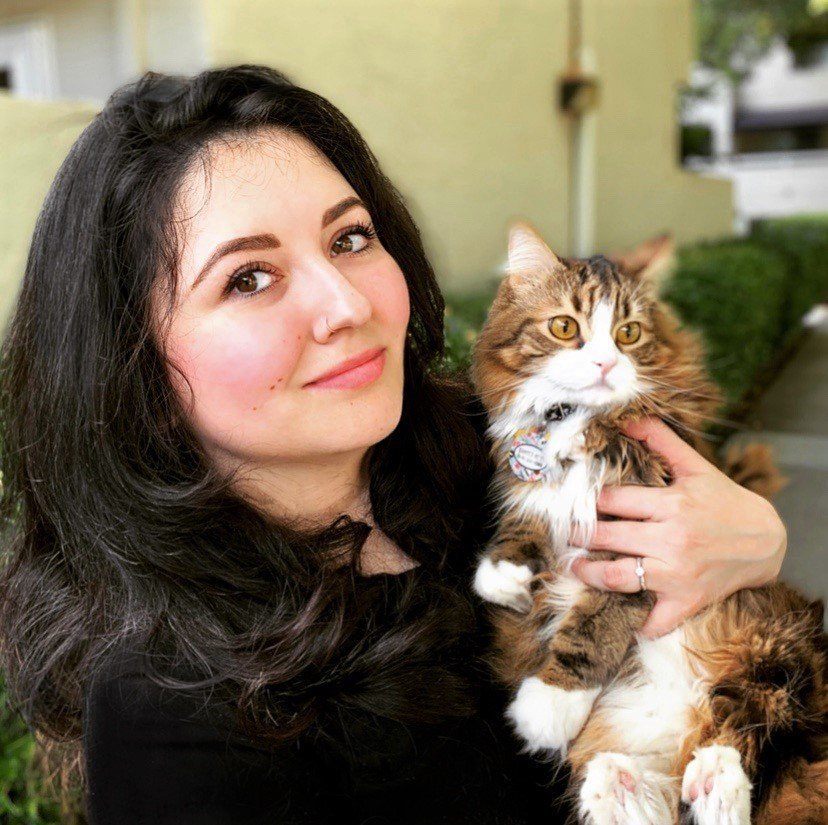
Olivia with her cat, Danger Kitty
Miss Kitty was my “gateway kitty” to an absolute obsession with animals (especially cats!). Through her, I learned to give and receive empathy and unconditional love, and she directly influenced my decision as an adult to work in the veterinary field (and, eventually, RedRover!).
She was my constant companion and the biggest comfort to me as an immigrant child learning to navigate an oftentimes scary new world.
This National Immigrant Heritage Month, I am thankful that my parents dreamed big, persevered despite facing incredible obstacles, and still made sure their kids experienced the magic that is having pets in the family.

